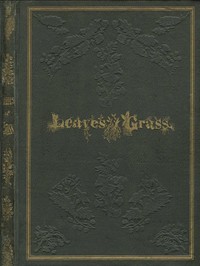Leaves of Grass by Walt Whitman
"Leaves of Grass" by Walt Whitman is a poetry collection first published in 1855. Beginning with just twelve poems, Whitman continuously revised and expanded this work throughout his life, eventually creating a collection of over four hundred poems. He celebrates American democracy, nature, the human body, and sensual pleasure in verse that breaks traditional rules of rhyme and meter. The book's explicit content sparked controversy and condemnation, yet it ultimately became recognized
as one of the central works of American poetry. (This is an automatically generated summary.)
Read or download for free
| Reading Options | Url | Size | |||
|---|---|---|---|---|---|
| Read now! | https://www.gutenberg.org/ebooks/1322.html.images | 844 kB | |||
| EPUB3 (E-readers incl. Send-to-Kindle) | https://www.gutenberg.org/ebooks/1322.epub3.images | 844 kB | |||
| EPUB (older E-readers) | https://www.gutenberg.org/ebooks/1322.epub.images | 879 kB | |||
| EPUB (no images, older E-readers) | https://www.gutenberg.org/ebooks/1322.epub.noimages | 681 kB | |||
| Kindle | https://www.gutenberg.org/ebooks/1322.kf8.images | 947 kB | |||
| older Kindles | https://www.gutenberg.org/ebooks/1322.kindle.images | 847 kB | |||
| Plain Text UTF-8 | https://www.gutenberg.org/ebooks/1322.txt.utf-8 | 762 kB | |||
| Download HTML (zip) | https://www.gutenberg.org/cache/epub/1322/pg1322-h.zip | 555 kB | |||
| There may be more files related to this item. | |||||
Similar Books
About this eBook
| Author | Whitman, Walt, 1819-1892 |
|---|---|
| Title | Leaves of Grass |
| Note | Wikipedia page about this book: en.wikipedia.org/wiki/Leaves_of_Grass |
| Credits | G. Fuhrman and David Widger |
| Reading Level | Reading ease score: 62.2 (8th & 9th grade). Neither easy nor difficult to read. |
| Language | English |
| LoC Class | PS: Language and Literatures: American and Canadian literature |
| Subject | American poetry -- 19th century |
| Category | Text |
| EBook-No. | 1322 |
| Release Date | May 1, 1998 |
| Most Recently Updated | Apr 27, 2021 |
| Copyright Status | Public domain in the USA. |
| Downloads | 11579 downloads in the last 30 days. |
| Project Gutenberg eBooks are always free! | |

